Jeremy Fogel There have been judges in every civilization that I know of. They’re not always called judges, but I mean, they could be elders or they could be wise people. But there’s a role for this kind of person. And there is, I think what you hope for from that kind of person is, you want equanimity, you want wisdom. You want an ability to hear people, to be receptive and empathetic and compassionate. When people talk about justice, I think they’re implicitly usually kind of looking for those kinds of qualities. I think there’s hope there because I think there is a strong residue of good will in people. And no matter how dark the times get, people want to be their best selves and do good things. And I think a lot of judges aspire toward that. And so that does make me hopeful. You know, and there’s a whole side that doesn’t make me hopeful. There’s a whole side that I worry about, that it’ll just kind of become mechanical and judges will become, you know, agents of repressive governments and all that kind of thing. So you just sort of have to hope that positive, aspirational stuff is strong enough in enough people. And I’ve always believed that because that’s kind of been the reason why I’ve lived the life that I have.
Dacher Keltner What do you think it takes to become wiser, more compassionate, and more open minded? Years of lived experience? Maybe some are inherently better at it than others? Or perhaps it’s practice.
Dacher Keltner I’m Dacher Keltner. Thanks for joining me on The Science of Happiness. Today, we’re delving deeper into the profound effects of mindfulness practices, with one of The Science of Happiness’s most popular episodes. Former District Judge Jeremy Fogel joins us to discuss how practicing mindfulness can help us all become better decision makers. Later in the show, we’ll learn about how mindfulness affects our moral reasoning.
Shauna Shapiro Normally in our daily life, we’re bombarded with so much information, we lose touch with what we truly value.
Dacher Keltner More on The Science of Happiness, up next.
Dacher Keltner Welcome back to The Science of Happiness, I’m Dacher Keltner. We’re revisiting one of our most popular and my favorite episodes this week about how mindfulness can affect our judgment. Jeremy Fogel is a former district judge in Northern California. He’s also at the forefront of a movement to bring mindfulness practices into the work of judges. Jeremy joins us to dig into the power of mindfulness to improve courtrooms and our own decision making. Jeremy, thanks for being in conversation.
Jeremy Fogel Sure.
Dacher Keltner You know, with this incredible career as a federal judge and in law, did you always want to be a judge when you were a kid?
Jeremy Fogel No. No, in fact, even being a lawyer was not really on my screen. And then, this was during the late sixties and the early seventies, and the Vietnam War was going on. There was a lot of social unrest. And so, law school seemed like it would be a fit for my passion about social justice. And so that’s what attracted me to going to law school. And I had relatively short law practice. I actually was only a lawyer for seven years, and most of that time I was representing pretty vulnerable people. They were people with chronic mental illnesses and mental impairments that made it very difficult for them to communicate or get any kind of services or really any kind of respect, socially. And in the course of representing them and going to court with them, I had interaction with a lot of judges. And one of the things that I came to believe was that a lot of judges really did not have a lot of ability to deal with vulnerable people very well. You know, that they were not respectful, they were not good listeners, they were not compassionate. And somewhere in that process I said, you know, that’s something I think I could probably do pretty well. You know, I usually tend to see both sides of an issue. Like, you know, I’d like to do that job and I’d like to do that job differently from the way I’m seeing it done.
Dacher Keltner Yeah.
Jeremy Fogel And at the same time, one of things I did not like, particularly about being a lawyer, was that you from an ethical standpoint, you have to represent one side of a case.
Dacher Keltner Right.
Jeremy Fogel And a lot of cases have more than one side. You know, they, there, there, you know, there are problems. I mean, there’s problems between and among people. And I was always seeing the other side of the case as well as my own, and, not great if you’re trying to be.
Dacher Keltner A little too reasonable.
Jeremy Fogel A little too reasonable. And so, I think it was kind of in there that I really thought about being some kind of neutral. I thought about either being a professional mediator or being a judge.
Dacher Keltner And what got you to mindfulness or meditation?
Jeremy Fogel Well, that came later. But I mean, I never really pursued meditation. I mean, I was pursuing a career and I was young and I had kids and all this. And actually what happened was that, after I’d been a judge now for 15 years I guess, right around the time I got nominated for the federal court, which was a pretty stressful thing, because at that time the President’s nominees were not getting a very easy time in the Senate, and I was really feeling pretty stressed out by that. And my wife actually suggested that we go to an MBSR class.
Dacher Keltner And a quick pause for our listeners here. MBSR refers to mindfulness-based stress reduction. It’s an eight-week course that has been shown to help people deal with stress and pain.
Jeremy Fogel We did the eight-week MBSR training and really liked it. You know, it was really helpful, you know, being able to just stop and pay attention to where we were. And I kind of noticed an immediate difference in my life. And so I did more of it. You know, MBSR is guided and it’s pretty structured. And at some point I stopped needing that. I stopped needing the structure.
Dacher Keltner Yeah.
Jeremy Fogel I just kind of got more into the, into a Zen sort of place where I just liked breathing and, and just letting myself be. And I also noticed that as I did that more and more, that the spiritual element of meditation really started to assert itself.
Dacher Keltner How would you describe that?
Jeremy Fogel Well, it’s just that I just became more aware of it. As more space got cleared out inside of me, I felt a great deal of equanimity. I think that’s probably the greatest thing I’ve gotten from meditation, and part of the equanimity is just this sense of spiritual connection. It became more and more part of my daily being, and I think that’s when I really started to believe, Hey, this is really transformative. It’s, it’s made me so much more myself.
Dacher Keltner You know, just talking to judges and how complicated the hours are of their day of integrating information, just the complexity of the cases they face, of child custody or taking a dad away from his kids, etc., how did this practice, this contemplative practice, change how you judge?
Jeremy Fogel Well, I think the great virtue of these practices is that you slow down. You see things in the job, you know, and particularly in some of the places that you just mentioned, I mean, like in family court. Or if you’re doing heavy criminal, where you see people who do really bad things to other people. That has an emotional impact on you. It stimulates your visceral responses. And then that in turn kind of makes your judgment less accurate and you just don’t have the space. I mean, you’re living more in your emotions. And so, what I came to believe and what I believe very much now is that mindfulness practice gives you more of a, of an ability to regulate your emotions, to notice what’s happening, to be present, to think about each situation you’re facing as a unique situation. And I think those are incredibly useful skills for judges to have. And you can learn the law and you can learn all the procedure and everything else, but you still have to be able to bring yourself to the task and be present in it. And I think it’s just hard for people to do that.
Dacher Keltner Yeah.
Jeremy Fogel And so I think in three areas where meditation and mindfulness practice can help judges, I mean, for one thing, it can help you get through the sort of the repetitive nature of the day.
Dacher Keltner Yeah.
Jeremy Fogel All of the things you see over and over again, and to be able to deal with each of those situations as a new situation. And it also sort of allows you to be present in the situation. And then other people in the situation feel that, they feel your presence. You know, they can tell that you’re there. You know, they can tell that you’re listening, you know. And it may be the 10,000th guilty plea you’ve taken, but it may be the first guilty plea this defendant has ever entered. So that’s one thing. And then all of the implicit assumptions, the implicit biases that people have, you know, I mean, judges, being fair is what being a judge is about. It’s sort of a cardinal virtue, you know, and I think, I actually think judges try very hard to be fair, but you don’t know what you don’t know. You don’t know where your unconscious assumptions are.
Dacher Keltner Yeah.
Jeremy Fogel And then the third part is just the self-care part of it, that it’s a job that stirs up your emotions all the time. And, you know, the norm for the job is you don’t get all emotional. You don’t yell at litigants. You know, you don’t cry on the bench. I mean, there’s just all these things you’re not supposed to do. And so what ends up happening for most judges is they just stuff it all down, and then it ends up being, you know, it shows up in physical health problems or substance abuse or whatever.
Dacher Keltner I mean, it’s so fascinating how this aligns with what we know about, you know, the neuroscience of mindfulness. It gets your prefrontal cortex system to more involved in handling stress and opens your mind up to thinking about alternatives. You know, you’re pushing these pretty radical, not radical, but, you know, unusual ideas, I would imagine, for the judiciary, which is emotion regulation and stress and mindfulness. How’s that going?
Jeremy Fogel Well, you know, I, it’s been a work in progress. I always have tried, in talking about this, to get away from the tendency of people to stereotype it as some sort of new age-y thing. There’s a reason why it’s practiced all over the world and there’s a reason why there’s a common language and, and a lot of common practice, actually. There’s specific ways it can apply in your life as a judge, and you can do judging better.
Dacher Keltner Yeah.
Jeremy Fogel And I think people really like that. I mean, the performance related aspects of it because, you know, most judges are strivers in that sense. And I think if they can see where it’ll help them make better decisions or, you know, be able to manage difficult situations better, or even deal with implicit assumptions better, then they’re more receptive to it.
Dacher Keltner Are you seeing that work influencing the judicial system?
Jeremy Fogel I am. I think part of it is that, you know, I started getting a lot of invitations from judicial organizations to come talk to them. I mean, I’m doing a program next week for one of the state judiciaries about this. It’s, as people are going through very stressful times, I think there’s more and more of a realization that you need, judges feel like they need help. You know, they have, they have very stressful jobs. And just talking about how stressful their jobs are isn’t enough. The jobs continue to be stressful. And in fact, they’re getting more stressful for a lot of reasons. And so, when I was still back on the state court and we would do programs, not about mindfulness, but just about self-awareness and, you know, emotional intelligence, that those programs tended to be fairly marginalized back then.
Dacher Keltner In the small room at the conference.
Jeremy Fogel Yeah, exactly. You know, we’d get ten people for our seminar, that kind of thing. And now it’s like people pretty much everywhere recognize that it’s important.
Dacher Keltner Yeah.
Jeremy Fogel And so some of the states that I’ve been asked to work with are, you know, for lack of a better term, very red states. I think there’s just this sense of, you know, we need better skills for dealing with the stresses of our job. So, and I think there’s less of a stigma now. I think there’s more understanding that self-awareness is not a dirty word. I mean, it’s it’s it’s a good thing and helps you be better at this particular job.
Dacher Keltner Let’s say it spreads. I mean, we know, for example, mindfulness produces compassion, and compassion leads to less punitive, more restorative types of judgments. Do you think it’ll change the decisions or judgments that judges render?
Jeremy Fogel I think that’s a subtler kind of change. I don’t think that’s going to happen next week. It’s interesting. I mean, restorative justice is an incredibly important aspiration for us to have. You know, and when we think about all the ways that people can be hurtful to each other, but it’s really hard. You can pay lip service to it. But I mean, to really do it takes a tremendous amount of hard work and it also demands a lot of the participants. So I think that kind of transformative change is still off in the future somewhere.
Dacher Keltner Yeah.
Jeremy Fogel As people start to develop, you know, access their own inner compassion and kindness more, that it does slowly affect things. I mean, I think maybe there’s fewer judges now who just want to lock people up and throw the key away quite as much as they used to. You know, I think it’s kind of a slow trend. Part of being compassionate, frankly, you know, you feel compassion for victims as well as perpetrators. And, you know, it’s like, you want to make things right for them.
Dacher Keltner Yeah. I want to thank you, Jeremy. I just spoke with three different young people who had switched, you know, from applying to biz school or Ph.D. work to applying to law school. And I think that there’s something in the air right now where we’re really thinking about the spirit of justice and, and how to be vessels in the right way. And so thanks so much for joining us, Jeremy.
Jeremy Fogel You bet. Any time. And thank you.
Dacher Keltner Mindfulness trains us to pay attention to the present moment, but can it lead us to make wiser decisions?
Shauna Shapiro The word mindfulness means to see clearly. And the idea is, if you can see clearly, then you can respond effectively.
Dacher Keltner More on the science of mindful decision making, up next.
Shauna Shapiro The word mindfulness means to see clearly. And the idea is, if you can see clearly, then you can respond effectively and wisely.
Dacher Keltner Shauna Shapiro is a professor at Santa Clara University and the author of Good Morning, I Love You, a book on how to cultivate mindfulness and self-compassion. She and her team did a study to see if training people to be more mindful could improve their decision making.
Shauna Shapiro Could we train this capacity to pay attention in this curious and kind way that would develop a student’s ability to meet the present moment and make a wise and compassionate choice?
Dacher Keltner They got 25 college freshmen to take an eight-week mindfulness-based stress reduction course, learning various meditation practices like the body scan meditation and mindful walking.
Shauna Shapiro And the one way that we did change the mindfulness intervention is we did include practices of self-compassion and loving kindness, which I think are essential to the training, especially with making ethical decisions, that when we shame and judge ourselves, it shuts down the learning centers of the brain. And so we don’t even have the resources to learn from our mistakes and to make new choices.
Dacher Keltner At the outset of this study, the students filled out a bunch of questionnaires assessing their levels of mindfulness, emotion regulation, and happiness.
Shauna Shapiro And then we also wanted to look at their kind of capacity for moral reasoning.
Dacher Keltner That’s their ability to assess what’s right or wrong. They did that by presenting them with five moral dilemmas.
Shauna Shapiro For example, one of them is a father, contemplates stealing food for his starving family from a warehouse of a rich man.
Dacher Keltner Another involves a doctor who has to decide whether to give an overdose of painkillers to a suffering patient.
Shauna Shapiro The third is a school board chair must decide whether to hold a contentious and dangerous open meeting.
Dacher Keltner And so on. Each student is then asked to select the course of action they think the character in the scenario should take.
Shauna Shapiro But they’re also asked to rate the importance of 12 statements of reasoning. And that’s where it gets really interesting, where you see kind of, how are they making these decisions? What are the different processes they’re going through to evaluate? And so, by examining their responses to these kind of short vignettes, you’re able to assess a person’s moral reasoning.
Dacher Keltner At the end of the study, the students showed greater mindfulness, were better at regulating their emotions, and they felt happier.
Shauna Shapiro But we didn’t see an increase yet in moral reasoning. It was only at the two month follow up where we saw a significant increase.
Dacher Keltner Shauna suggests that this is because ethical behavior and moral maturity really take time to develop.
Shauna Shapiro And so it’s only through continued practice that greater benefits are seen, that this is really a skill that we’re developing.
Dacher Keltner This also raises the question, why would mindfulness lead us to make more ethical decisions?
Shauna Shapiro The way that mindfulness helps in decision making is that it allows for this kind of process of personal inquiry, as opposed to a purely top-down, hierarchical and moralistic process of being told what is right and what is wrong. It teaches people how to listen deeply and stay connected with their values, and then gives them this kind of courage and these attitudes of kindness and compassion to make choices that are aligned with that even when they’re difficult. And it really invites you to reflect on how these choices and actions will lead to the greater well-being for yourself and others.
Dacher Keltner I’m Dacher Keltner. Thanks for joining me on The Science of Happiness. Find links to mindfulness practices and other resources in our show notes. How has practicing mindfulness impacted your life? Send us an email at happinesspod@berkeley.edu. Or use the #happinesspod. Our executive producer of audio is Shuka Kalantari. Our producer is Haley Gray. Sound designer is Jennie Cataldo of Accompany Studios. Our editor-in-chief is Jason Marsh. The Science of Happiness is a co-production of UC Berkeley’s Greater Good Science Center and PRX.
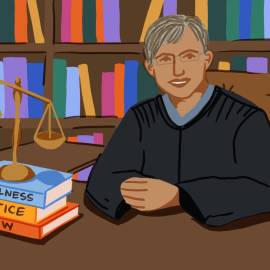


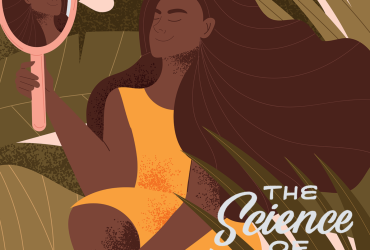
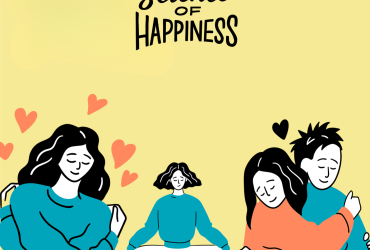
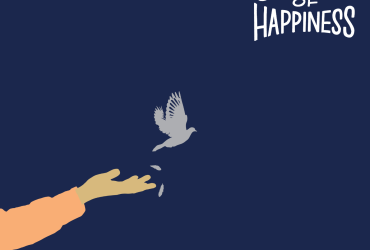

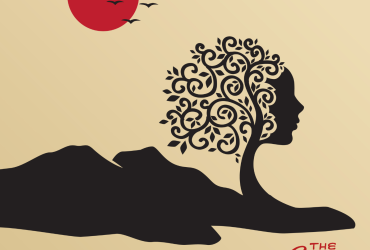
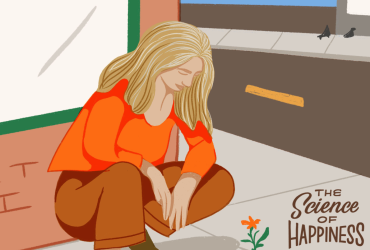
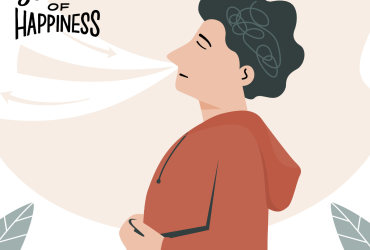
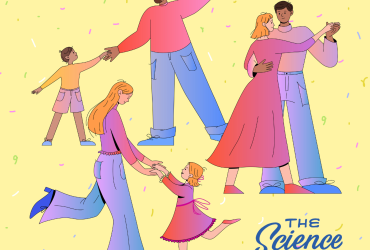
Comments